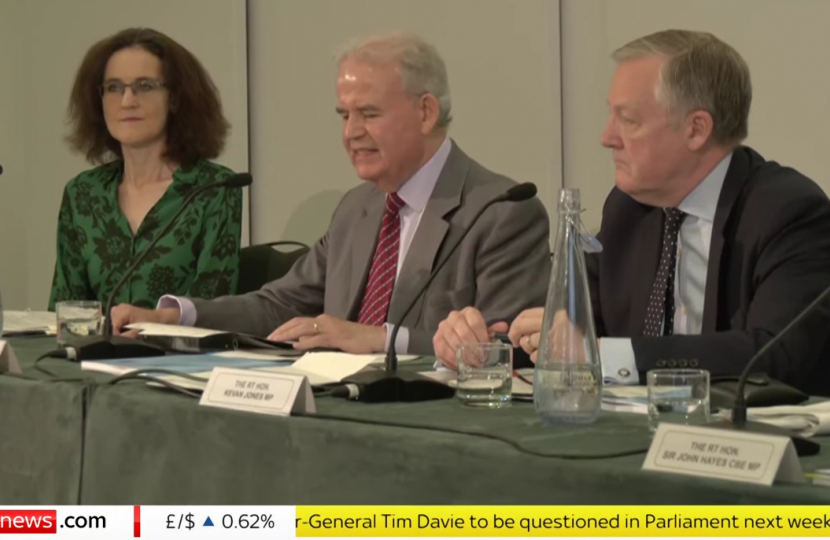
Theresa Villiers MP has helped launch a 200 page report on China by Parliament's Intelligence and Security Committee, of which she is a member. It received extensive coverage in the national media provoking a debate on the security threats to the UK posed by China. Key findings include:
On the national security threat to the UK:
● The fact that China is a strategic threat is not news. It is China’s global ambition to become a technological and economic superpower, on which other countries are reliant, that represents the greatest risk to the UK. China seeks to influence elites and decision-makers, to acquire information and Intellectual Property using covert and overt methods, and to gain technological supremacy.
● China’s state intelligence apparatus – almost certainly the largest in the world, with hundreds of thousands of civil intelligence officers (leaving aside their military capability) – targets the UK and its interests prolifically and aggressively, and presents a challenge for our Agencies to cover. China’s human intelligence collection is prolific, and it has a highly capable and increasingly sophisticated cyber-espionage operation.
On the ‘Whole-of-State’ Approach:
● The problem is compounded by China’s ‘whole-of-state’ approach. Chinese state-owned and non-state-owned companies, as well as academic and cultural establishments and ordinary Chinese citizens, are liable to be (willingly or unwillingly) co-opted into espionage and interference operations overseas.
● Much of the impact which China has on the UK’s national security is overt – through its economic might, its takeovers and mergers, and its interaction with Academia and Industry. China’s size, ambition and capability have enabled it to successfully penetrate every sector of the UK’s economy.
● China is similarly aggressive in its interference activities: while seeking to exert influence is legitimate, China oversteps the boundary. It has been particularly effective at using its money and influence to penetrate or buy Academia in order to ensure its international narrative is advanced and criticism suppressed.
● China’s attempts to influence the international narrative can also be seen clearly in its response to the pandemic, sowing seeds of doubt about the origins of the virus and greatly exaggerating its work to counter it. China has positioned itself to capitalise on the damage to world economies and may well emerge from the pandemic stronger than before.
Further details are available on the ISC's website here and the report can be downloaded here.


